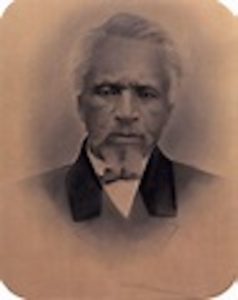
Hezekiah Grice
*This date, 1801, is celebrated as the birth date of Hezekiah Grice, a Black abolitionist, machinist, and businessman.
Grice was born in rural Calvert County, Maryland. Despite Maryland's status as a slave state, Grice received some formal education and became a machinist. Grice migrated to Baltimore, where he became a mathematician and inventor through formal education and work. He was also fluent in French.
Grice became affiliated with abolitionist editors like William Lloyd Garrison and Benjamin Lundy. While working as a machinist in Baltimore, he was one of the first to suggest holding a National Negro Convention to discuss the possibility of mass emigration by Africans away from the United States. This was the beginning of the Colored Conventions Movement. Grice was also a leading figure in founding the Legal Rights Association and pioneering several important American civil rights activism tactics.
He later moved to Haiti in either 1834 or 1835, where he could secure full citizenship rights. There, he became a prominent tradesman and a confidant of Faustin Soulouque. His motivation was to acquire the full citizenship rights that the United States had refused to grant him. He had a family in Haiti and was a skilled worker. Grice was trusted because he did not engage in Haitian politics, despite Grice's well-known Republican ideals.
He was prominent in Haiti for his inventions that manufactured sugar. However, the government of Haiti sent Grice to New York to acquire machine parts to build and maintain his sugar-manufacturing inventions in Haiti. Grice had eleven children: six sons and five daughters. Three of his sons and an unknown number of his daughters had emigrated to America; they spoke French and were educated in English. Hezekiah Grice died in 1863.